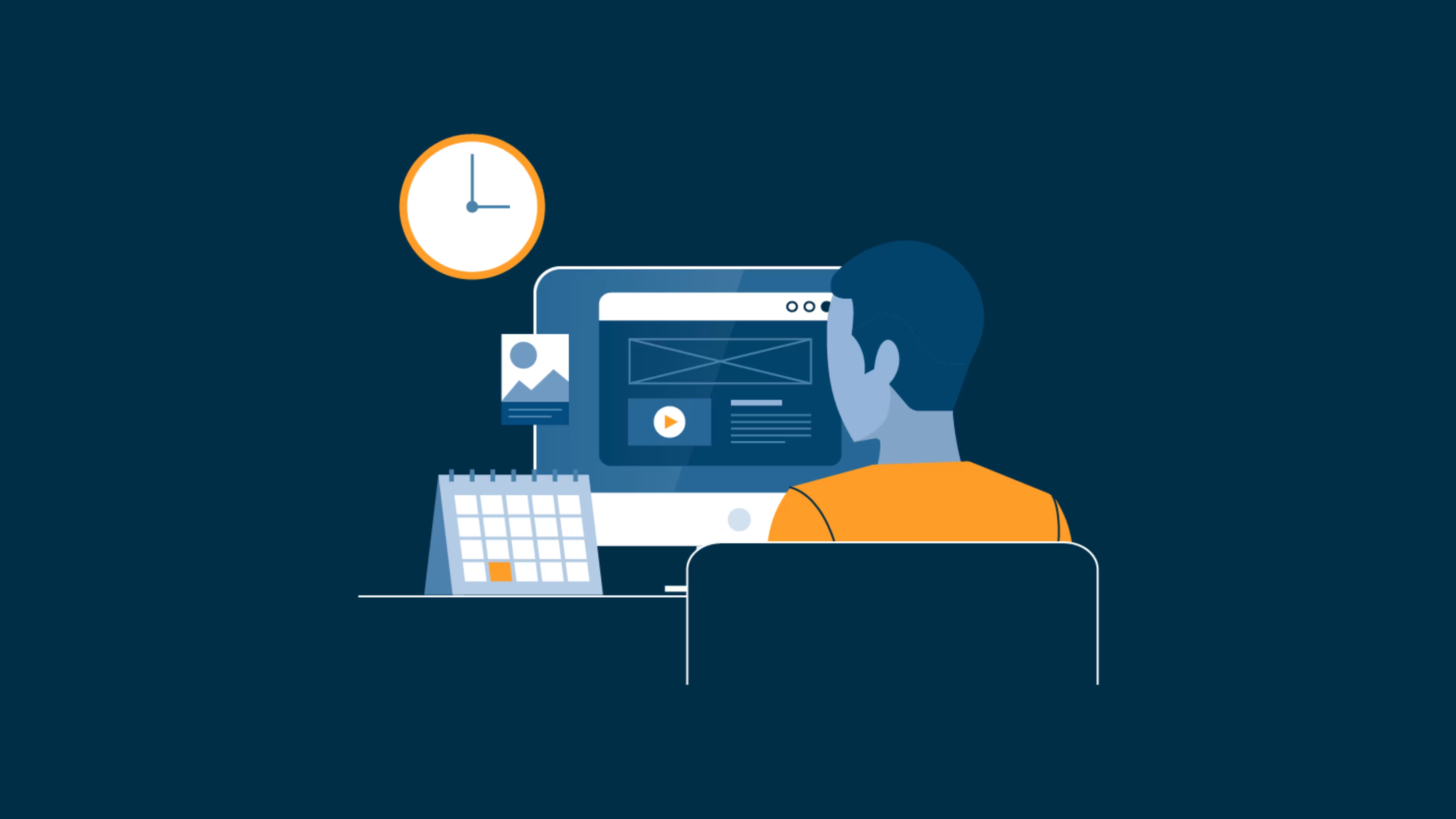Learn why you should hire a website designer for your next web project
Building a website for your business is a big deal. Your website will become your business’s storefront on the internet and help you reach more customers. Over 66% of the world’s population and 93.4% of North America have internet access.[1] A new website can open up a lot of new opportunities, but that can depend on your website design.
The design of your site can reflect the credibility of your business. It can also determine whether visitors come back or leave your site the first chance they get. Eighty-three percent of consumers will do business with a competitor if the customer experience on a website is poor.[2]
So, you may ask yourself, “Should I hire a web designer?” The answer to this question can depend upon a lot of things, including the type of business you run and how much of a budget you have. But a good website design can be a benefit to just about any business. In this article, we will look at a few reasons to hire a web designer and some things you should consider in the process.
Narrow your search for web design companies with our list of companies in the following areas:
Why should I hire a web designer?
There are many reasons hiring a web designer could be your best option when you want to refresh the look of your current website or create a whole new website. Before you consider another option, take a look at the benefits that come with having your website designed by a professional.
1. Save time and money
A big benefit of hiring a web designer is that it will save you time. Web designers are professionals who spend their day keeping up to date with the latest design trends and best practices while learning to use cutting-edge graphic design software. They also will have experience designing dozens, if not hundreds, of sites like yours. While you can try to get the same results by learning design and all the tools, it will take much longer, and the results won’t be comparable.
The right web designer will also be efficient and suggest features for your website you may not have thought of but will need later on, which will save you time.
2. Customized design
Many times, a business will use a content management system (CMS) to speed up the development process of their website. A CMS makes it easy for non-technical users to modify website content. The business may also choose to use one of the templates that the CMS provides and customize it with their branding and for their needs instead of hiring a web designer.
The problem with this is that many other businesses will be doing the same thing, and your design will end up looking like theirs, even with the customizations that were applied. A website designer will provide you with a unique design that fits your business whether you use a CMS or not.
3. Customer support
When you hire a web designer, you have someone you can call on to make modifications to the design quickly and easily. If you customize a template yourself or have someone on your team do it, they will be called away from their regular work to make the changes.
4. Professional look
A web designer will create a design for your website that is dynamic, functional, and attractive. Design standards and trends are always changing. These changes usually are the result of advances in technology that provide new features to improve user experience possible. Hiring a web designer will ensure that your design won’t look dated or like a cookie-cutter site that is only slightly different from other online sites.
5. Responsive design
Visitors to your website might use one of a number of devices to access it, and your one website design must look good in each format. Accomplishing this takes a lot of work, knowledge of possible devices, and responsive design skills.
Just because your site looks good in a standard web browser like Chrome doesn’t mean it will look good on an Android or iPhone. A web designer will make sure your website detects the device a visitor is using and applies the correct styles so your site always looks good.
6. Faster website
The speed of your website is important not only to your visitors but also to your website’s rank on Google. It has been proven that speeding up the time it takes your page to load can increase conversion rate, and it is also a factor that Google uses to determine the rank of your website in search results.[3] A web designer will optimize your site’s load time so that your visitors don’t leave to find a faster-loading competing site.
7. More potential traffic
Website designers know about search engine optimization (or SEO), which is the process of optimizing your website content and structure to get the highest rank possible in search engines. One of the ranking factors a website designer can help you with is site speed. But they can also optimize the structure of your site and its content so that it looks better to search engines like Google and you get more resulting traffic.
8. Reliability
When you hire a web designer, your website will simply be more reliable. If you try to create the design in-house or use a template, you may never be sure if there is a bug just waiting for a customer to find or if the design will stand up once it starts getting real traffic. A web designer will know all the ins and outs of creating a design that won’t crash and will be free of bugs.
Things to consider when hiring a web designer
If you’ve decided you want to hire a web designer, that's only the first step. Next, you need to find the right one. Here are some tips to help you find a web designer that fits your needs to ensure you can work with them effectively.
Know the goals for your website
The right web designer can provide you with a design that fits all of your needs and goals, but first, you must know what those are. Web designers are experts at embedding your message and brand into visual and interactive elements, but they aren’t marketing or advertising experts.
You must know the purpose of your site before contacting a designer. Will it sell products and services, or will it be a content marketing site designed to provide information? What is your company’s culture, and how do you want it represented on the internet? Do you target an older audience or a younger one?
There are many more questions you can ask yourself, but the point is that until you know what you want the website to do, you are not ready to look for a designer.
Have your copy ready
Another part of knowing the goals of your website is having your copy ready. Unless you have the site designed by a full-service advertising agency, you need to create the copy for the site or hire a copywriter.
It should be your goal to hand over the copy for the website at your first design meeting. It will help the designer get started quickly and give them more direction since they are able to design the site around the copy.
Examine a few designer portfolios
Before you contact the first designer, examine a few portfolios so you don’t waste your time. Start by asking your network who they would recommend. If that list is too short, search for web designers in combination with your industry. Many web designers specialize in designing sites for specific types of businesses and will already be familiar with what your customers or clients expect.
Once you have a list of potential web designers, visit their portfolios and see what catches your eye and fits your business. Any web designer worth hiring will have an extensive portfolio, but not all will fit your style. Once you have a few options, you can set up a meeting with each to determine who will design your new website.
Ask questions
While interviewing web designers, there are a few questions you want to ask that will help you determine just how much of the web development process they cover. After all, web design is only one element of a successful website.
Who will develop the website? Web designers design the visual elements and user flow of a website, but a web developer is needed to make the designs a reality. Many designers work with web developers. Others do not, and you will have to hire one as well.
How will maintenance be handled? Websites are not a one-time cost. They require ongoing maintenance. Will your staff handle this, or does the designer provide maintenance or are they able to suggest someone?
Do you need licenses for any of the graphics? Some fonts or graphics in your website design may need licenses. It is your responsibility to be on the right side of the law, so be sure to ask your web designer.
What is the process if revisions are needed? Getting your design doesn’t mean you also get the web designer’s services for life. Find out what it will cost you if you want to make changes to the design in the future.
Do you get an editable copy of the design files? You will need these if you want to make changes to the design and the original web designer is not available.
Learn more about web design
The design of your website is an important part of your branding and the experience you provide for your customers. Hiring a web designer means you will get a professional design that fits your brand, looks good on multiple devices, and can save you time and money.
Ready to hire a web designer for your business needs? Browse our list of top web design companies and learn more about their services in Capterra’s hiring guide.
To learn more about web design and how it can contribute to the growth of your business, check out these articles:

